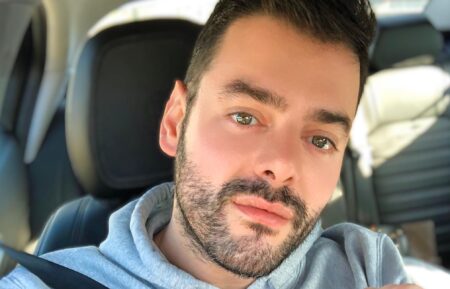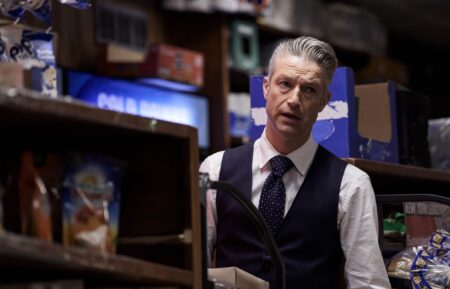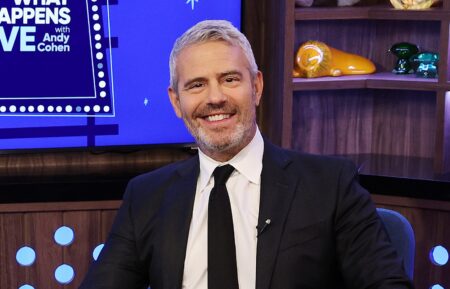‘Chicago Med’: Steven Weber on Honoring John Ritter With ‘Meaningful’ Medical Storyline
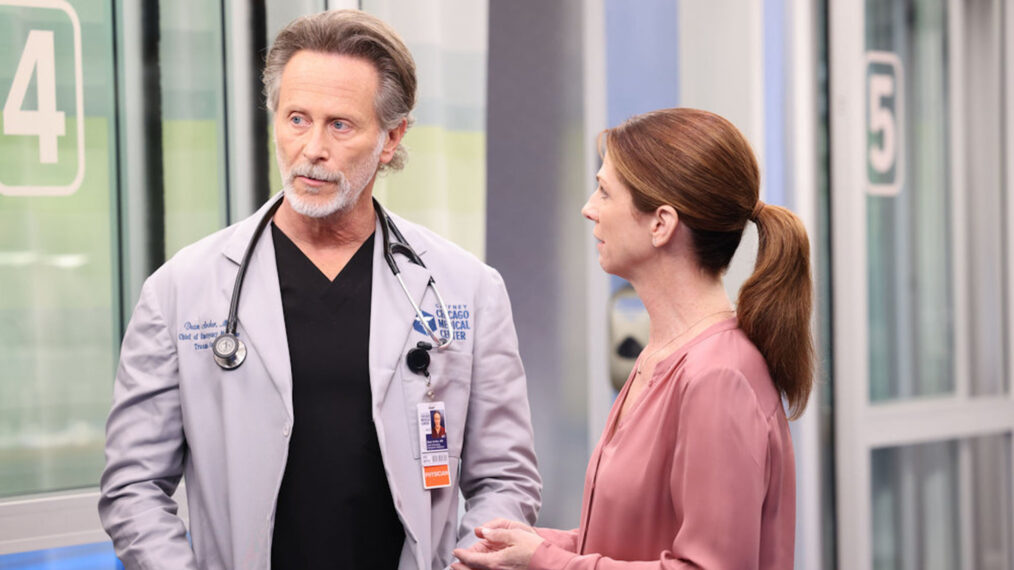
Q&A
This week’s Chicago Med features a case that’s personal for Steven Weber (Dr. Dean Archer), who calls it “almost like a gift.”
One of Archer’s patients needs open-heart surgery following an aortic dissection diagnosis; that’s what claimed the life of Weber’s friend, John Ritter, whose widow, Amy Yasbeck founded the John Ritter Foundation for Aortic Health following his passing.
“Amy had been talking about trying to find some sort of television or network tie-in in some regards to help spread the word about aortic dissection,” Weber tells TV Insider. “Then this happened, almost like a gift. And so when I read the script, I did speak to the producers, and they were very incredibly helpful in floating the possibility of tying it into the show. They tried and they succeeded and I couldn’t be happier. And Amy is ecstatic.” With this episode, he hopes that “people came away with not only being moved by the story, but informed about something that is actually incredibly widespread and not that well known.”
There wasn’t anything he specifically asked to be included, because “I think they handle the particular storyline and the particular issue with care and with specificity, and it’s that care and specificity that made my ears prick up. In regards to the John Ritter Foundation, it actually kind of wrote itself. It was this gift from heaven, if you will, that seemed to answer Amy Yasbeck’s hope that a show could actually portray something meaningful and educational in regards to aortic dissection.”
While this may be personal for Weber, it isn’t for Archer so “he handles it in the way that he usually does,” the star says. “He’s very blunt. He’s good as a surgeon. He might not have the best bedside manner … but he does care about these patients and he cares about giving them the care that they deserve. So he goes in with customary bluntness and exactitude.”
Also related to Archer in this episode, Dr. Charles (Oliver Platt) and Nellie (Lilah Richcreek Estrada) treat his patient’s schizophrenic son. And in a way that does affect Archer — but in the sense of what he’s going through as he tries reconnecting with his son. “His patients become surrogates in a sense to his own son who he has issues with about possibly having not cared for as well,” Weber explains.
When it comes to Archer and his son, there are “some crucial moments” coming up, which Weber calls “fairly moving and interesting.” And in exploring that side of his character, “it’s changing Archer into somebody with more depth so that the audience doesn’t see just a guy committing occasionally rude or blunt or even destructive acts to himself and to other patients. It’s telling his story with a bit more detail. We’re finding his biography to be compelling and justifying in a sense,” Weber says.
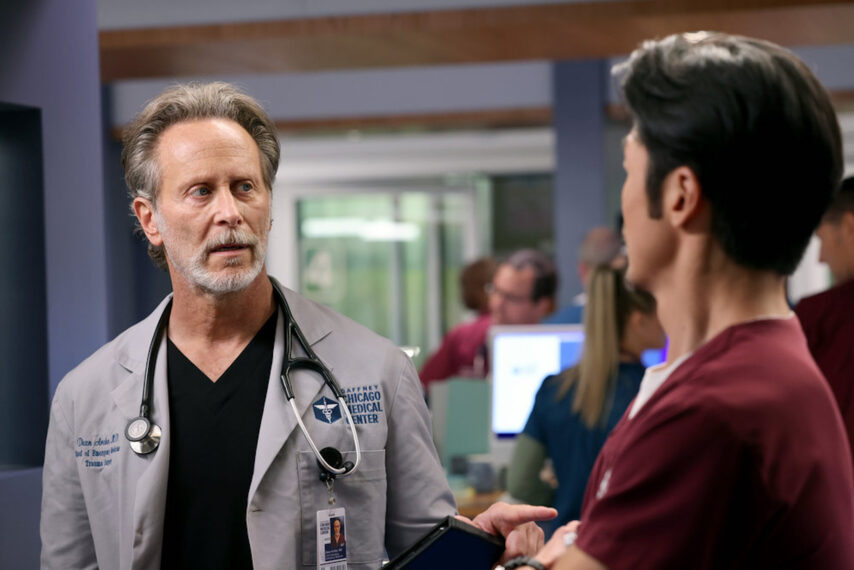
George Burns Jr/NBC
“For me, it’s helpful as an actor because it gives me more to chew on and it gives me more to relate to because I have sons and there’s, of course, a special bond there and it gives me a well from which to draw as an actor to hopefully make these moments that the show writes credible and hopefully moving to the audience,” he continues.
Also keep an eye out for more great scenes between Archer and Charles. “I personally love working with Oliver. We seem to have occasionally intersecting storylines. Invariably they have to do with my character’s psyche, wounded psyche, and Oliver’s character’s ability to kind of care for somebody like that,” Weber remarks. Plus, there are some “interesting developments between he and Hannah Asher [Jessy Schram],” he teases. “They’re both sort of teaching each other a little bit.
When Weber first joined Med, he said “even though he’s really good at what he does, he might not be good at healing himself” of Archer. So is his character going to be getting as close as he can to changing that this season? “There is a progression in his growth about his awareness, through him reaching out to his son and through his relationship with the other characters on the show, with Ethan [Brian Tee] and with Hannah, for instance,” he says. “So yeah, he’s becoming a richer, more aware guy, [which] shows that people can change, even after they’ve had a rough history in a sense. It is definitely progressing. However, it doesn’t preclude the possibility of his regressing or taking kind of a lateral move where he can still do something that might not be in his best interest. It’s not easy to change. But he’s trying.”
Chicago Med, Wednesdays, 8/7c, NBC

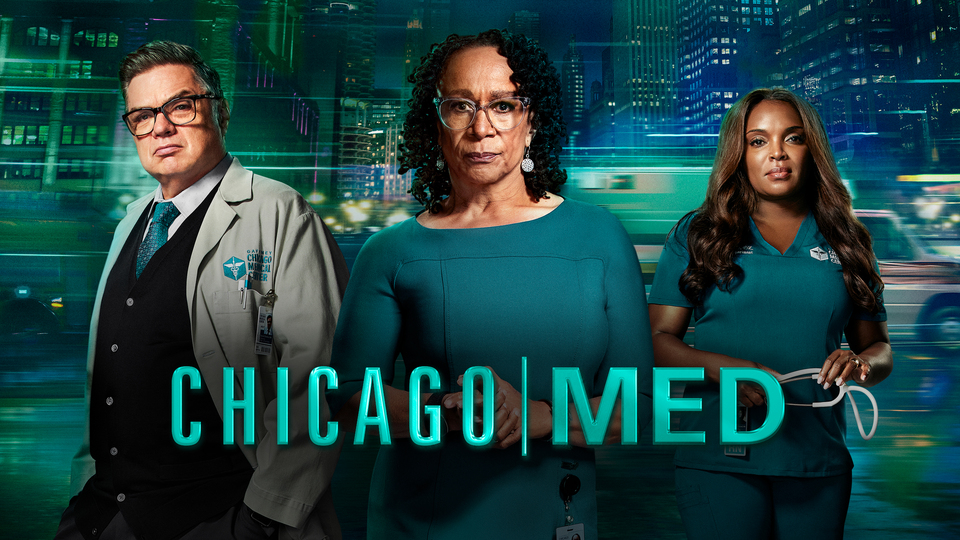
!['Chicago Med' Bosses on [Spoiler]'s Return in Season 8 Premiere & What's Next](https://www.tvinsider.com/wp-content/uploads/2022/09/chicago-med-ethan-234x155.jpg)


